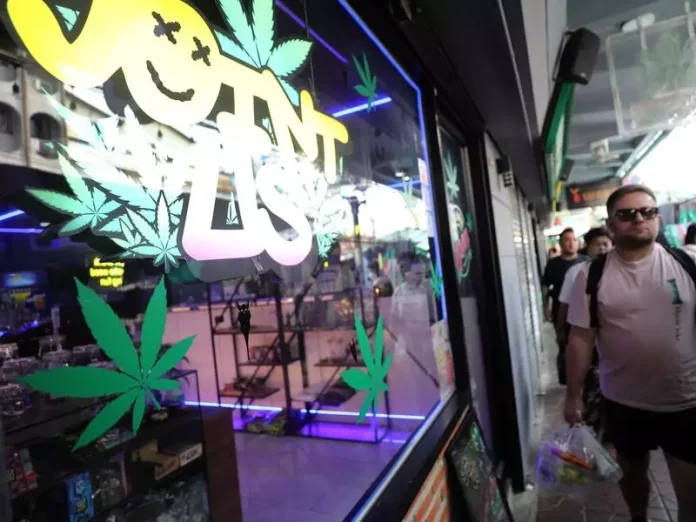Health Minister Cholnan Srikaew announced that Thailand would ban recreational marijuana use by the end of the year, but would continue to allow its use for medical purposes, according to Reuters.
Without the law to regulate cannabis it will be misused. The misuse of cannabis has a negative impact on Thai children. In the long run it could lead to other drugs.
After Thailand became the first country in Southeast Asia to allow medical cannabis use in 2018 and then recreational use in 2022, tens of thousands of cannabis shops have emerged in an industry projected to be worth $1.2 billion by the following year.
However, critics argued that individual regulations were rushed through in the week after decriminalisation, with the government drafting a new law regulating cannabis use, which was expected to come into force by the year-end.
The draft bill will be sent to the cabinet for approval next month and then sent to parliament to be passed.
The previous government failed to get the law through parliament before last May’s general election, leaving Thailand without a single law regulating marijuana use. Cannabis shops operating illegally would not be allowed to continue operating while home cultivation of cannabis would also be discouraged, Cholnan Srikaew added.
In the new law, cannabis will be a controlled plant, so growing it would require permission. We will support [cannabis cultivation] for the medical and health industry.
The bill provides for a fine of up to 60,000 baht (US$1,700) for recreational use. Those who sell cannabis for such use and are involved in the advertising or marketing of buds, resin, extract or smoking devices will face up to a year in prison and/or a fine of up to 100,000 baht (US$2,800).
It also increases the penalties for growing cannabis without a licence, with jail terms of one to three years and fines ranging from 20,000 baht (US$560) to 300,000 baht (US$8,000). The minister added that the import, export, cultivation and commercial use of cannabis would also require authorisations.
However, the government recognises the economic benefits of the industry and will therefore give businesses time to adjust to the new rules. Such shops would be able to operate until their licences expire, and then could turn into legal cannabis clinics if they followed the new rules, Cholnan stated.
